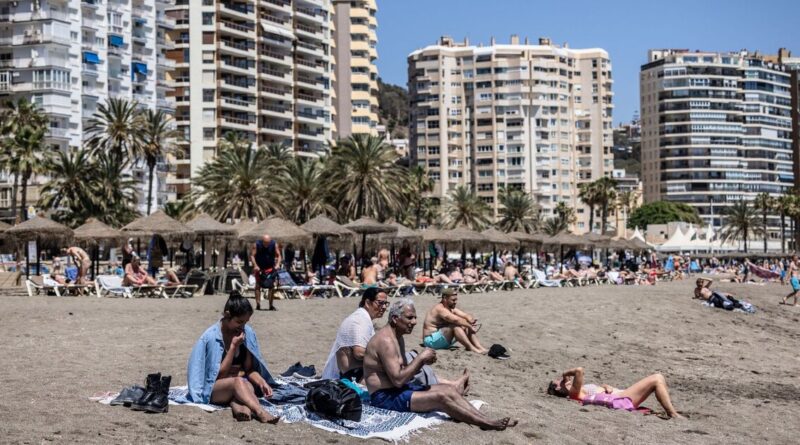Spain’s anti-tourism protesters dealt blow as hotspot hits record number of visitors | World | News
Costa del Sol and the wider Malaga province in Spain marked a record year in 2024, welcoming 14.4 million tourists—an impressive 3.17% rise from 2023, according to the latest figures from Turismo Costa del Sol.
Tourists there spent a remarkable €21.2 billion (£17.7bn), reflecting a 10.9% increase from the previous year.
The tourism sector remains a solid driving force for the economy, with job creation up by 7%, reaching 137,408 employees.
Francisco Salado, president of the Costa del Sol tourist board, praised the year’s success, emphasising that tourism remains the primary industry for both the province and the wider Andalucía region.
He pointed out that the growth in both international tourists and tourism-related jobs highlights the enduring strength of the sector.
Speaking to Sur, an English-language news outlet in Spain, he also noted that hotel profitability increased by 6%, underlining the overall economic benefits of the record-breaking year.
Despite the positive figures, there were some concerns about the future. Mr Salado explained that while 2024 had been an outstanding year, tourism figures for 2025 are not guaranteed. Global factors were counted among potential issues, including international conflicts and sliding domestic economies.
A rise in visitors, particularly from the UK, the US, and Germany, contributed to Costa del Sol’s position as one of the leading tourist destinations in Spain and Europe.
The region did, however, see a decline in domestic tourism, with only 2.45 million Spanish visitors—a 7.5% decrease compared to the previous year. In response, Mr Salado announced plans to implement measures to regain the Spanish market, acknowledging that many Spaniards are choosing private holiday lets over traditional hotels.
The news will fly in the face of protestors who took to the streets in several Spanish towns and cities, including Malaga, last year to voice opposition to what they say is destroying their communities.
In April, activists in Tenerife staged a three-week hunger strike against plans to build a new tourist megaproject on the island.
On the mainland in Barcelona, a small group of protestors squirted visitors dining at restaurants with water pistols. Among their slogans included the words “tourism kills the city” and “tourists go home”.
Spain now faces a tough job in balancing the calls of its people with foreign visitors since tourism represents a staggering 13% of the country’s GDP.





